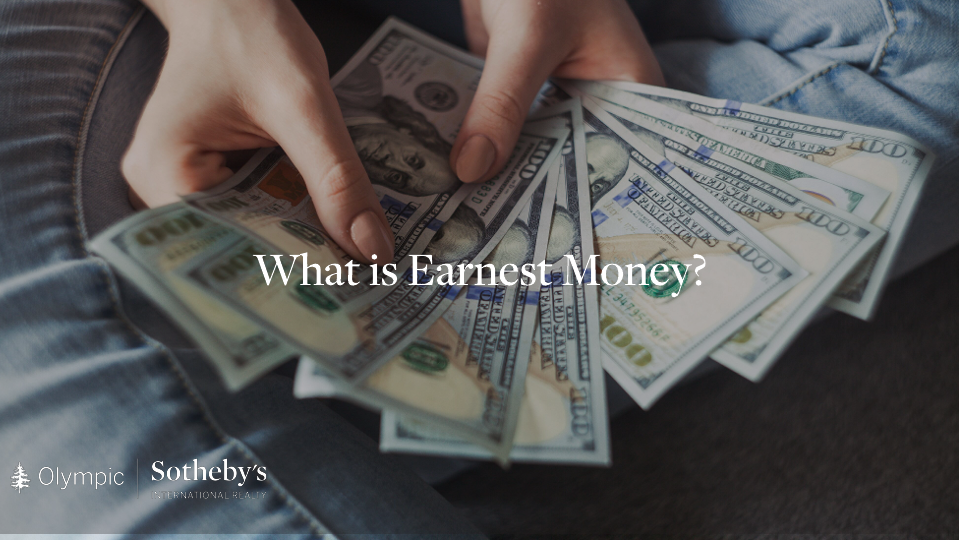
What is Earnest Money?
When it comes to buying or selling real estate, there are many important terms and concepts to understand. One term often used during home-buying is "earnest money." But what exactly is earnest money, and why is it important? In this blog post, we will delve into the details of earnest money, its purpose, and how it affects real estate transactions.
What is Earnest Money?
Earnest money, also known as a good faith deposit or a binder, is a sum of money that a buyer provides to a seller as a show of sincerity or seriousness in wanting to purchase a property. It is typically paid by the buyer to the seller or their agent after the offer to purchase a property has been accepted and is held in an escrow account until the transaction is completed or terminated. Earnest money is not a down payment but rather a separate sum of money that accompanies the offer to purchase as a form of security for the seller.
The main purpose of earnest money is to protect the seller if the buyer fails to fulfill their obligations under the contract. It serves as a form of assurance for the seller that the buyer is serious about their intention to buy the property and is willing to forfeit the earnest money if they fail to close the transaction according to the agreed-upon terms and conditions. Earnest money can also be used to compensate the seller for any damages or losses incurred if the buyer defaults on the contract.
How Much Earnest Money is Needed?
The amount of earnest money required can vary depending on factors such as local customs, the property price, and the parties' preferences. In general, the earnest money is a percentage of the purchase price and typically ranges from 1% to 5% of the total purchase price. However, depending on the negotiations between the buyer and seller, it can be higher or lower. The earnest money is usually stated in the purchase agreement or contract, along with the terms and conditions for its forfeiture or return.
It's important to note that earnest money is not always refundable. If the buyer defaults on the contract, the seller may be entitled to keep the earnest money as compensation for their losses. However, there are circumstances in which the buyer may be entitled to a refund of the earnest money, such as if the seller breaches the contract, if the buyer cannot obtain financing as specified in the contract, or if there are contingencies that are not satisfied.
The Terms and Conditions of Earnest Money
To protect their interests, buyers and sellers must be aware of the specific terms and conditions regarding earnest money in their local jurisdiction and ensure that they are clearly outlined in the purchase agreement. It's also advisable for both parties to work with a qualified real estate attorney or agent who can provide guidance and ensure that their rights are protected.
In some cases, buyers may be required to provide additional earnest money deposits during the course of the transaction, known as additional or increased earnest money. These deposits may be required at certain milestones in the transaction process, such as after the inspection or appraisal, and are meant to demonstrate further the buyer's commitment to completing the transaction.
Earnest Money is an Important Part of the Process
In conclusion, the earnest money is a sum of money that a buyer provides to a seller as a show of good faith when making an offer to purchase a property. It serves as a form of security for the seller, and its purpose is to protect the seller if the buyer fails to fulfill their obligations under the contract.
The amount of earnest money required can vary, and it is important for both buyers and sellers to be aware of the specific terms and conditions regarding earnest money in their local jurisdiction. Working with a qualified real estate attorney or agent can help ensure that the earnest money process is properly understood and executed in a real estate transaction

